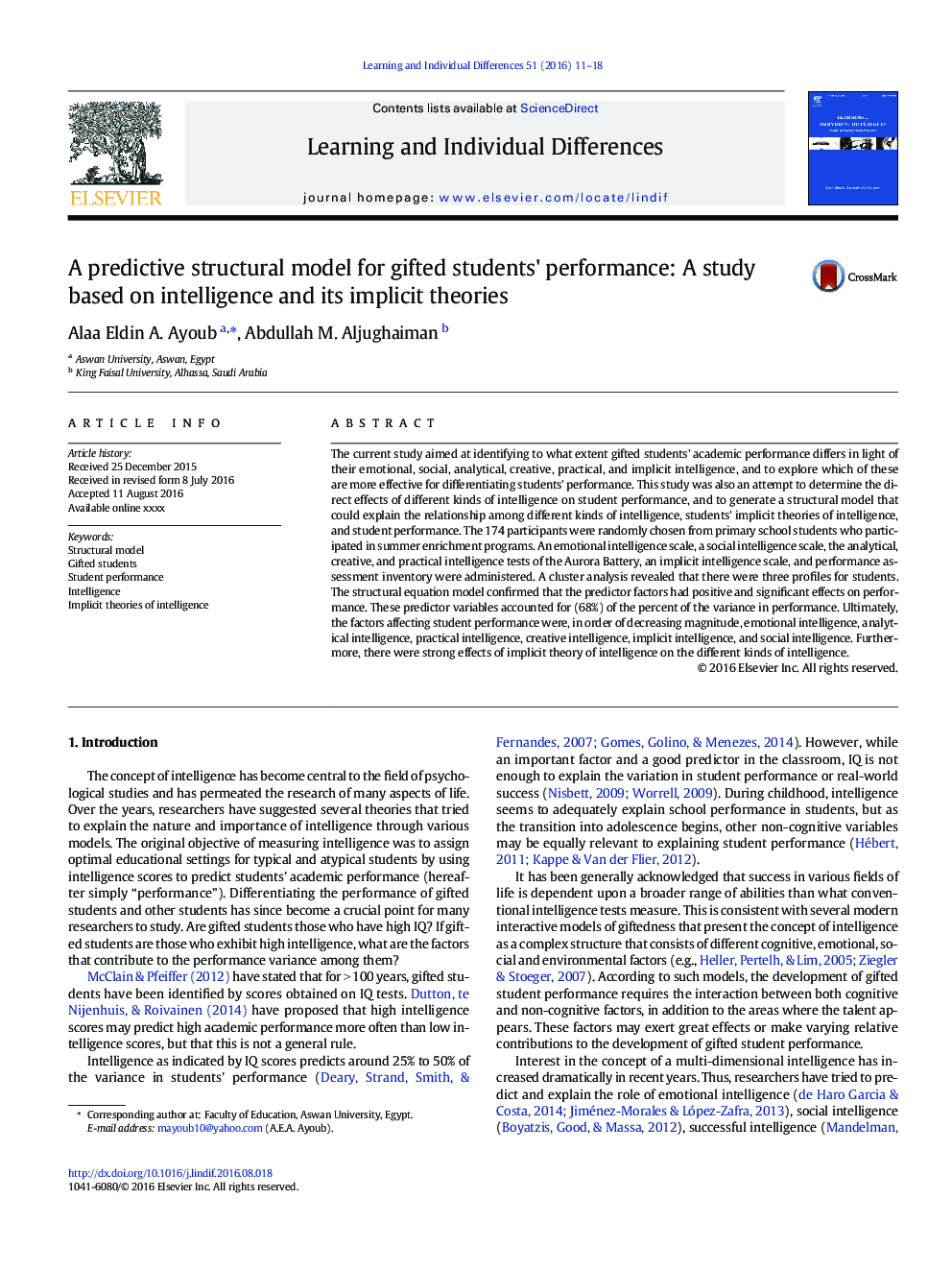| Article ID | Journal | Published Year | Pages | File Type |
|---|---|---|---|---|
| 4940094 | Learning and Individual Differences | 2016 | 8 Pages |
Abstract
The current study aimed at identifying to what extent gifted students' academic performance differs in light of their emotional, social, analytical, creative, practical, and implicit intelligence, and to explore which of these are more effective for differentiating students' performance. This study was also an attempt to determine the direct effects of different kinds of intelligence on student performance, and to generate a structural model that could explain the relationship among different kinds of intelligence, students' implicit theories of intelligence, and student performance. The 174 participants were randomly chosen from primary school students who participated in summer enrichment programs. An emotional intelligence scale, a social intelligence scale, the analytical, creative, and practical intelligence tests of the Aurora Battery, an implicit intelligence scale, and performance assessment inventory were administered. A cluster analysis revealed that there were three profiles for students. The structural equation model confirmed that the predictor factors had positive and significant effects on performance. These predictor variables accounted for (68%) of the percent of the variance in performance. Ultimately, the factors affecting student performance were, in order of decreasing magnitude, emotional intelligence, analytical intelligence, practical intelligence, creative intelligence, implicit intelligence, and social intelligence. Furthermore, there were strong effects of implicit theory of intelligence on the different kinds of intelligence.
Related Topics
Social Sciences and Humanities
Psychology
Developmental and Educational Psychology
Authors
Alaa Eldin A. Ayoub, Abdullah M. Aljughaiman,
